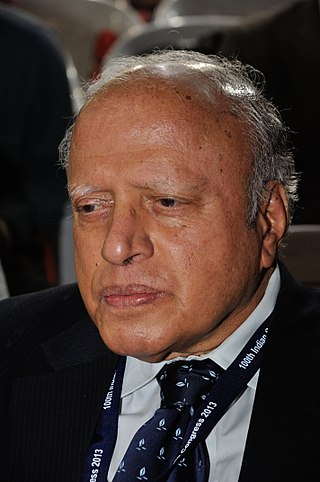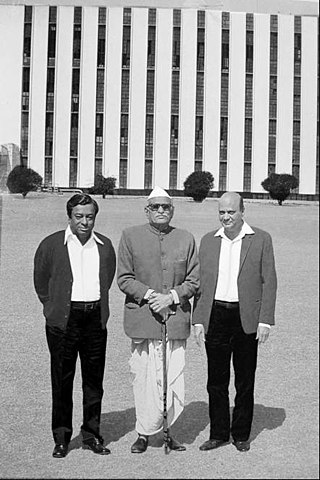| |||||
| Centuries: | |||||
|---|---|---|---|---|---|
| Decades: | |||||
| See also: | List of years in India Timeline of Indian history | ||||
Events in the year 1612 in India.
| |||||
| Centuries: | |||||
|---|---|---|---|---|---|
| Decades: | |||||
| See also: | List of years in India Timeline of Indian history | ||||
Events in the year 1612 in India.

The Industrial Revolution, sometimes divided into the First Industrial Revolution and Second Industrial Revolution, was a period of global transition of the human economy towards more widespread, efficient and stable manufacturing processes that succeeded the Agricultural Revolution. Beginning in Great Britain, the Industrial Revolution spread to continental Europe and the United States, from around 1760 to about 1820–1840. This transition included going from hand production methods to machines; new chemical manufacturing and iron production processes; the increasing use of water power and steam power; the development of machine tools; and the rise of the mechanised factory system. Output greatly increased, and the result was an unprecedented rise in population and the rate of population growth. The textile industry was the first to use modern production methods, and textiles became the dominant industry in terms of employment, value of output, and capital invested.

The East India Company (EIC) was an English, and later British, joint-stock company founded in 1600 and dissolved in 1874. It was formed to trade in the Indian Ocean region, initially with the East Indies, and later with East Asia. The company gained control of large parts of South Asia and Hong Kong. At its peak, the company was the largest corporation in the world by various measures and had its own armed forces in the form of the company's three presidency armies, totalling about 260,000 soldiers, twice the size of the British Army at certain times.

The Green Revolution, or the Third Agricultural Revolution, was a period of technology transfer initiatives that saw greatly increased crop yields. These changes in agriculture began in developed countries in the early 20th century and spread globally until the late 1980s. In the late 1960s, farmers began incorporating new technologies such as high-yielding varieties of cereals, particularly dwarf wheat and rice, and the widespread use of chemical fertilizers, pesticides, and controlled irrigation.

A waqf, also called a ḥabs, or mortmain property, is an inalienable charitable endowment under Islamic law. It typically involves donating a building, plot of land or other assets for Muslim religious or charitable purposes with no intention of reclaiming the assets. A charitable trust may hold the donated assets. The person making such dedication is known as a waqif ('donor') who uses a mutawalli ('trustee') to manage the property in exchange for a share of the revenues it generates. In Ottoman Turkish law, and later under the British Mandate of Palestine, a waqf was defined as usufruct state land from which the state revenues are assured to pious foundations. It allows the state to provide social services in accordance with Islamic law while contributing to the preservation of cultural and historical sites. Although the waqf system depended on several hadiths and presented elements similar to practices from pre-Islamic cultures, it seems that the specific full-fledged Islamic legal form of endowment called waqf dates from the 9th century AD.

The Tennis Court Oath was taken on 20 June 1789 by the members of the French Third Estate in a tennis court on the initiative of Jean Joseph Mounier. Their vow "not to separate and to reassemble wherever necessary until the Constitution of the kingdom is established" became a pivotal event in the French Revolution.
Philanthropy is a form of altruism that consists of "private initiatives for the public good, focusing on quality of life". Philanthropy contrasts with business initiatives, which are private initiatives for private good, focusing on material gain; and with government endeavors that are public initiatives for public good, such as those that focus on the provision of public services. A person who practices philanthropy is a philanthropist.

Norman Ernest Borlaug was an American agronomist who led initiatives worldwide that contributed to the extensive increases in agricultural production termed the Green Revolution. Borlaug was awarded multiple honors for his work, including the Nobel Peace Prize, the Presidential Medal of Freedom and the Congressional Gold Medal, one of only seven people to have received all three awards.
Open Society Foundations (OSF), formerly the Open Society Institute, is a US-based grantmaking network founded by business magnate George Soros. Open Society Foundations financially supports civil society groups around the world, with the stated aim of advancing justice, education, public health and independent media. The group's name was inspired by Karl Popper's 1945 book The Open Society and Its Enemies.

Mankombu Sambasivan Swaminathan was an Indian agronomist, agricultural scientist, geneticist, administrator and humanitarian. Swaminathan was a global leader of the green revolution. He has been called the main architect of the green revolution in India for his leadership and role in introducing and further developing high-yielding varieties of wheat and rice.
Axial Age is a term coined by the German philosopher Karl Jaspers. It refers to broad changes in religious and philosophical thought that occurred in a variety of locations from about the 8th to the 3rd century BCE.

Frederick North, Lord North was appointed to lead the government of the Kingdom of Great Britain by King George III from 1770 to 1782. His ministry oversaw the Falklands Crisis of 1770, the 1780 Gordon Riots and the outbreak of the American War of Independence.

The White Revolution, or Operation Flood, launched on January 13, 1970, was the world's largest dairy development programme and a landmark project of India's National Dairy Development Board (NDDB). It transformed India from a milk-deficient nation into the world's largest milk producer, surpassing the United States in 1998 with about 22.29 percent of global output in 2018. Within 30 years, it doubled the milk available per person in India and made dairy farming India's largest self-sustainable rural employment generator. The programme was launched to help farmers direct their own development and to give them control of the resources they create. It also promoted jersey cows and heavily increased lactose intolerance amongst Indians.

The Boston Tea Party was an American political and mercantile protest on December 16, 1773, by the Sons of Liberty in Boston in colonial Massachusetts. The target was the Tea Act of May 10, 1773, which allowed the East India Company to sell tea from China in American colonies without paying taxes apart from those imposed by the Townshend Acts. The Sons of Liberty strongly opposed the taxes in the Townshend Act as a violation of their rights. In response, the Sons of Liberty, some disguised as Native Americans, destroyed an entire shipment of tea sent by the East India Company.
South Indian cuisine includes the cuisines of the five southern states of India—Tamil Nadu, Andhra Pradesh, Karnataka, Kerala and Telangana—and the union territories of Lakshadweep, and Pondicherry. There are typically vegetarian and non-vegetarian dishes for all five states. Additionally, all regions have typical main dishes, snacks, light meals, desserts, and drinks that are well known in their respective region.

The Green Revolution was a period that began in the 1960s during which agriculture in India was converted into a modern industrial system by the adoption of technology, such as the use of high yielding variety (HYV) seeds, mechanized farm tools, irrigation facilities, pesticides, and fertilizers. Mainly led by agricultural scientist M. S. Swaminathan in India, this period was part of the larger Green Revolution endeavor initiated by Norman Borlaug, which leveraged agricultural research and technology to increase agricultural productivity in the developing world. Varieties or strains of crops can be selected by breeding for various useful characteristics such as disease resistance, response to fertilizers, product quality and high yields.
Hindu Revolution is a term in Hindu nationalism referring to a sociopolitical movement aiming to overthrow untouchability and casteism to unified social and political community to create the foundations of a modern nation.

Panchayat was a political system in Nepal from 1961 to 1990. It banned political parties and placed all governmental power, including power over the Council of Ministers and Federal Parliament, under the sole authority of the king; this made the country a de facto absolute monarchy.
Subroto Roy is an Indian economist, formerly an economic policy advisor to Rajiv Gandhi (1990–91), contributing editor to The Statesman and faculty member at UH-Manoa and IIT Kharagpur.
Socialism in one country was a Soviet state policy to strengthen socialism within the country rather than socialism globally. Given the defeats of the 1917–1923 European communist revolutions, Joseph Stalin encouraged the theory of the possibility of constructing socialism in the Soviet Union alone. The theory was eventually adopted as Soviet state policy.

Foundations of Leninism was a 1924 collection made by Joseph Stalin that consisted of nine lectures he delivered at Sverdlov University that year. It was published by the Soviet newspaper, Pravda.